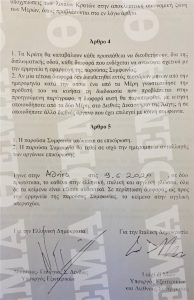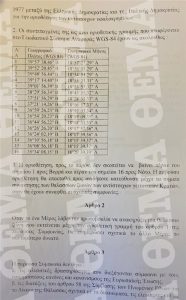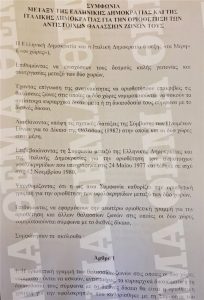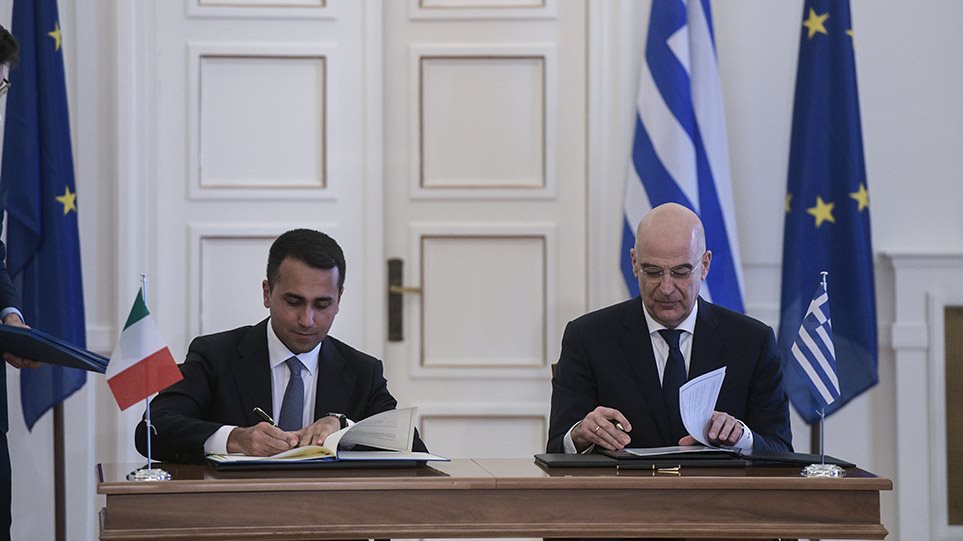Protothema.gr brings to light the official text of the Agreement between Greece and Italy on the delimitation of their maritime zones is brought to light by protothema.gr.
In just five articles, Athens and Rome agreed to implement the delimitation line of the Greek-Italian agreement of 24 May 1977 on the implementation of additional maritime zones in which the two countries have legal claims under international law. The agreement, signed on June 9, 2020 by Foreign Minister Nikos Dendias on behalf of the Hellenic Republic and his Italian counterpart Luigi di Mayo on behalf of the Italian Republic, is based on the provisions of the 1982 United Nations Convention on the Law of the Sea.
also read
UEFA Champions League final to be held on August 23 in Portugal, report says
Greece ranks 58th in the Global Peace Index 2020 (infographic)
Paragraph 1 of Article 1 states: International law will be the demarcation line for the continental shelf defined by the 1977 Agreement between the Hellenic Republic and the Italian Republic for the delimitation of the respective continental shelfs “.
Paragraph 2 of Article 1 lists the coordinates that define the boundary line. Paragraph 3 of Article 1 stipulates that “this demarcation shall be extended in all directions to the meeting points of the maritime zones of the respective neighbouring States, when the relevant agreements have been concluded”.
Article 2 states: “When one Party undertakes to declare a maritime zone extending to the boundary line of Article 1 of this Agreement, it shall inform the other Party as soon as possible.”
Article 4 states that “this Agreement shall not affect:
a. the fishing activities carried out in accordance with the applicable rules and regulations of the European Union,
b. the provisions of Article 58 of the United Nations Convention on the Law of the Sea concerning the rights, freedoms and obligations of other States in the exclusive economic zone of the Parties, as provided for in that Article. ‘
Article 5 provides that this Agreement is subject to ratification and shall enter into effects on the date of exchange of the instruments of ratification.







































